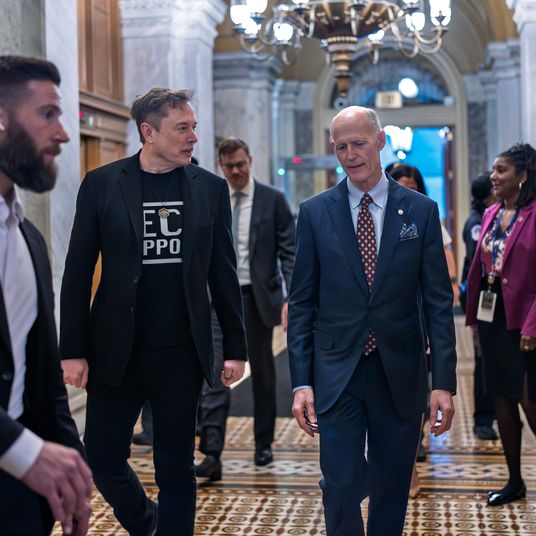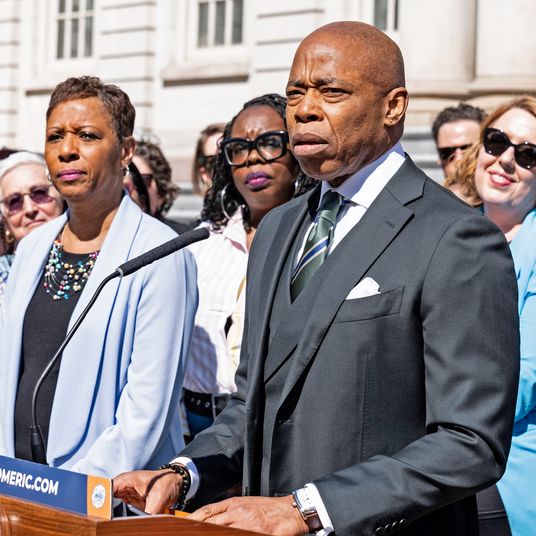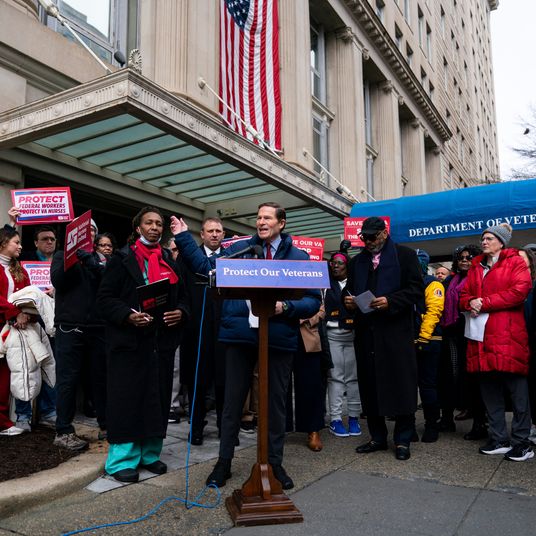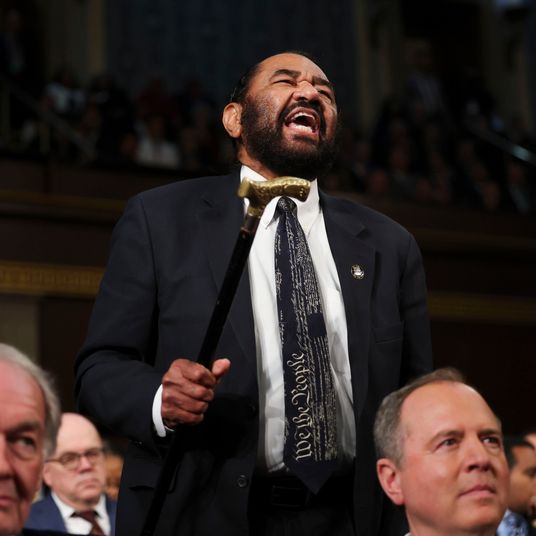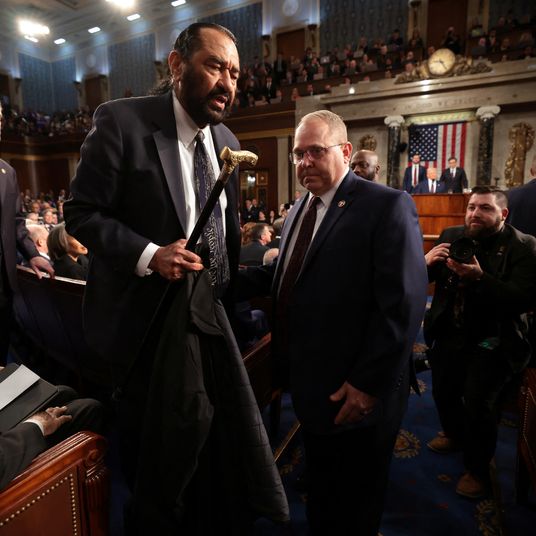
When a political party is stuck with a really unpopular policy position, it has two basic options for dealing with that problem: It can downplay the issue or even change the subject when it comes up, or it can try to reframe or repackage it to mitigate the damage. That’s the choice facing Republicans today on the red-hot abortion issue.
The GOP is stuck, to a considerable extent, because of its ancient alliance with an anti-abortion movement that includes conservative Christian activists central to the party’s grassroots operations and donor base. Due to the Supreme Court’s reversal of Roe v. Wade, Republicans can now set abortion policy in many states, and they could potentially enact national abortion restrictions if they do well in 2024. The forced-birth lobby is loath to let GOP politicians “moderate” their views, despite a sizable and intense backlash to the reversal of Roe that Democrats hope to ride to victory in November. So, in an effort to make the best of a bad deal, House Republicans have decided to go for repackaging their views instead of evading them, as The Wall Street Journal reports:
A memo prepared by House Republicans’ campaign arm and viewed by The Wall Street Journal says Republicans have a “brand problem, not a policy problem,” as their reluctance to discuss the issue left it to Democrats to define where the GOP stood. Many voters view the party’s hopefuls as opposing abortion under any circumstances, when there are actually a variety of positions held by candidates, particularly in swing districts, the memo states.
The guidance tells candidates that they must “confidently articulate” their stance and that “being unwilling to stake out a clear position with voters is the worst possible solution.”
As it happens, I agree with the House GOP wizards that silence is rarely golden when a party has a big problem with a highly salient issue. But it doesn’t follow that Republicans will be able to rebrand themselves without changing their underlying policies. Their unsavory reputation on matters of reproductive rights isn’t a mistaken identity or a bad rap that Democrats have invented or exaggerated, much as they try to pretend they are actually in the mainstream. Sure, as Nikki Haley has shown, you can soften the impact of unpopular positions on abortion if you couch them in outspoken empathy for the women your policies would punish, and the Journal quotes National Republican Congressional Committee chair Richard Hudson as urging his candidates to do just that. But his claim that voters just don’t understand the sweet reasonableness of the GOP on this issue is self-delusional:
Hudson intends to back his argument up with a poll conducted in more than 60 competitive House districts by Kellyanne Conway, a pollster and former senior adviser to Donald Trump. The polls found that about one-third of people surveyed associated Republicans with wanting to outlaw all abortions, while a similar number showed respondents saw Democrats favoring abortion for any reason at any time. Republicans say that underneath the basic abortion-rights and anti-abortion labels, voters generally back some restrictions on abortion, putting them more in line with the GOP than Democrats.
It’s unsurprising to see Conway in this role. She has long been an adviser to Republicans on how to talk about “women’s issues,” and she had the painful experience of watching her 2012 client Todd Akin blow up his Senate candidacy and put other Republicans on the spot by stupidly denying that rape can produce an unwanted pregnancy. As Politico notes, Conway is now warning GOP candidates to stop arguing that Democrats will legalize abortion “up to the moment of birth,” because such abortions are not plausible. She is instead suggesting that Republicans argue that virtually everyone wants some abortion restrictions and some exceptions, so there’s nothing inherently “extremist” about favoring more of the former and less of the latter, particularly if, as Conway recommends, the GOP is vocal about supporting access to contraception.
But the problem with making the two parties functionally equivalent on abortion policy, and essentially turning down the temperature of disputes over it, is that you cannot spin the assortment of total bans and near-total bans Republicans tend to support as just another point of view on a complicated issue. The basic and unshakable extremism of that party on reproductive rights was cast in sharp relief by the Alabama Supreme Court decision declaring non-implanted embryos as all but citizens. The many GOP politicians from Donald Trump on down who have raced to declare their support for the IVF treatments imperiled by this decision, and the pushback they are getting from anti-abortion groups for their cowardice on this issue, show that the intraparty “debate” on abortion is taking place at the far end of the spectrum of possible positions. Voters don’t trust the GOP on abortion policy because Republicans constantly give the impression they will favor the most restrictive position they can get away with and don’t even view the issue as involving the inalienable rights of women.
It will take a very basic change of attitude to alter voter perceptions of the two parties on abortion, not just “reframing” or some poll-tested language or slogans. No wonder the instinct of many Republicans is to answer abortion questions by vaguely mumbling about “respect for life” and then moving on to crime or immigration or inflation as quickly as possible.
More on life after roe
- ERA Ratification Is Now Up to Trump’s Supreme Court
- The Unlikely Reason RFK Jr. Could Be Rejected by the Senate
- Project 2025’s Mastermind Is Obsessed With Contraception









